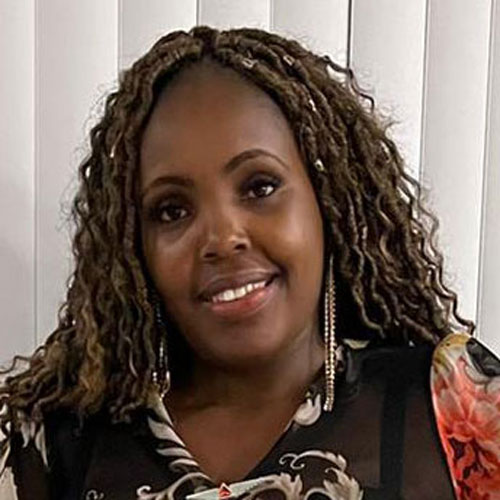MAP Awards 2022 MAP Awards 2022 MAP Awards 2022
The Multicultural Alumni Partnership celebrates historically underrepresented UW students with financial support.
By Viewpoint Staff | Viewpoint Magazine
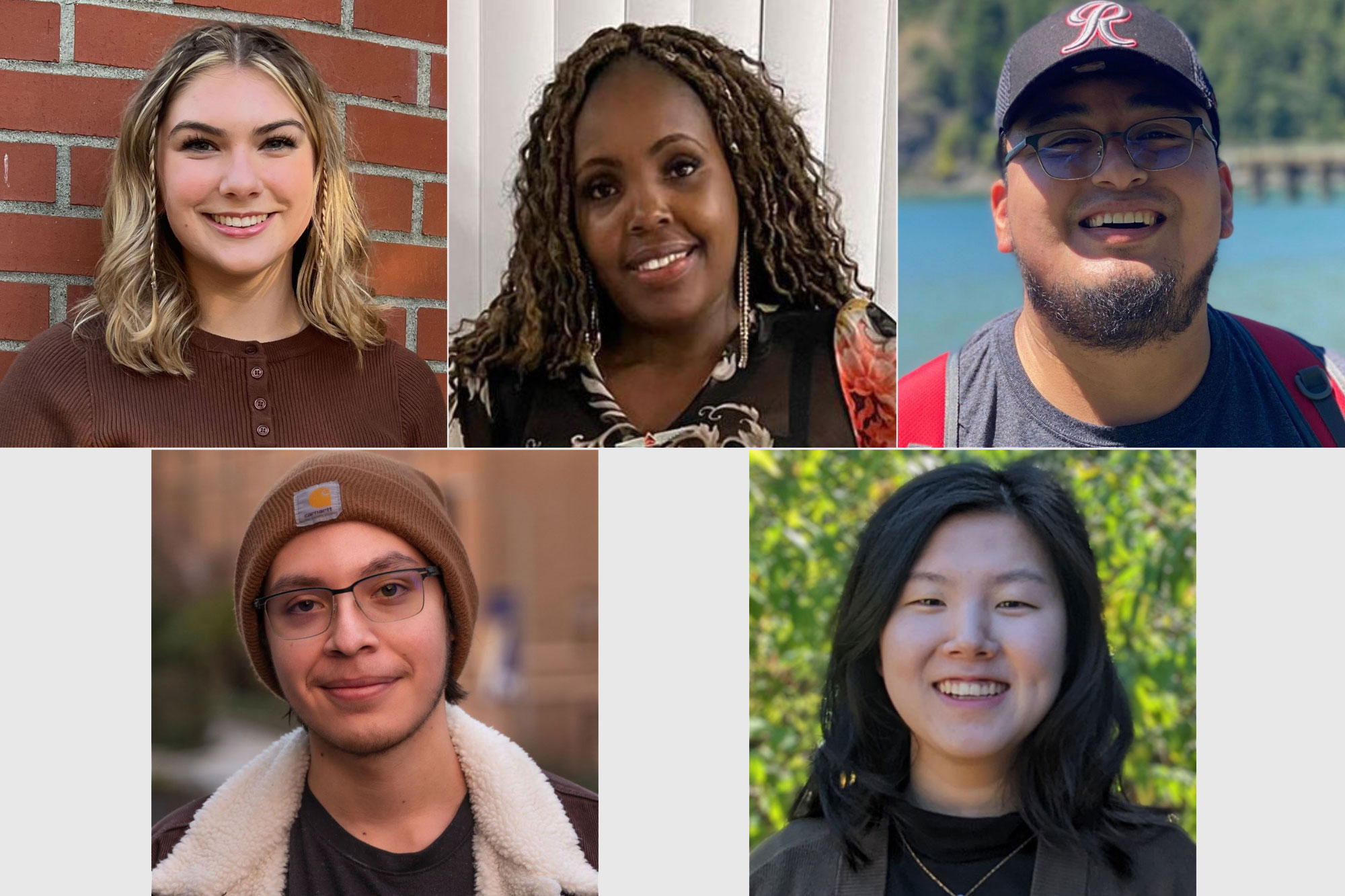
Since 1994, alumni and friends in the Multicultural Alumni Partnership have worked together to promote diversity at the UW and address issues of equity and diversity on our campuses and in our community. They do this through mentoring, supporting lectures, networking in the community and providing scholarships.
Each year, the Multicultural Alumni Partnership reaches out to historically underrepresented UW students with financial support. This year’s promising scholars range from early undergraduates who are still zeroing in on a major to those pursuing graduate and professional degrees.
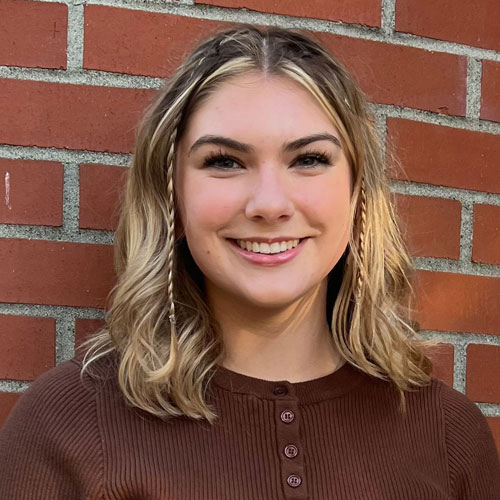 Riley Olsen
Riley Olsen
Riley Olsen’s decision to major in psychology and pursue minors in disability studies and education, learning and societies was driven by her family experience with autism and neurodevelopment disorders. “I have been given the opportunity to witness firsthand how applied behavior analysis therapy and occupational therapy have positively impacted their lives,” she says. “That has compelled me to pursue a similar career path [to those health professionals] so that I can also have a positive impact on others’ lives.” She is an enrolled member of the Makah Tribe in Neah Bay.
Esther Wanjiku Mwaniki
Esther Wanjiku Mwaniki is a senior pursuing a bachelor’s degree at the School of Nursing. She spent her childhood in a remote village in central Kenya. With limited finances, her family did not encourage her dream of becoming a nurse. “But I pursued my dreams relentlessly,” she says. She came to the U.S. in 2017. As a single mother coping with the challenges of full-time school, she made her way to the UW through Renton Technical College and Pierce College. She is on track to complete her degree in June. One day, she would like to open a free health clinic. “I want to be a part of the change in this world, and I believe that I can bring a positive influence on today’s health care crisis,” she says.
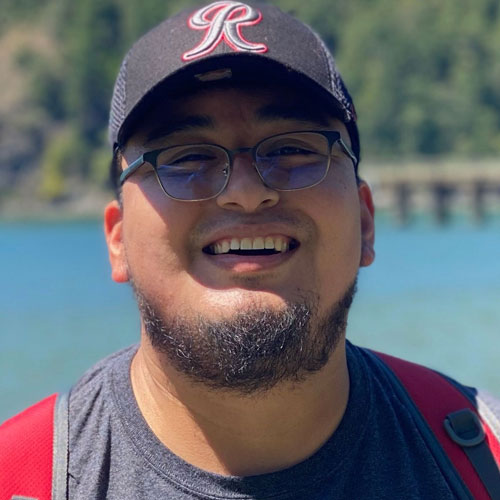 Ivan Nolasco Hernandez
Ivan Nolasco Hernandez
When Ivan Nolasco Hernandez was a kid, he joined a local Oaxacan band and fell in love with music. Today, he is in his second year of his master’s in music education and close to completing a teaching certificate. He was born and raised in Los Angeles in a family of Zapotec immigrants from Oaxaca, Mexico. While his parents always hoped he would attend college, that goal felt unreachable to him as a first-generation student who struggled in the American public school system. But his passion for music carried him into college, which led him to explore the value of music in his own life and in the life of his community, especially for young people. As a music major, he offered free music lessons and coaching at a local high school. In graduate school, he is inspired to further develop his craft with an emphasis on social justice and a global perspective. He hopes to use his talent and training to support and inspire young people as a public-school music teacher.
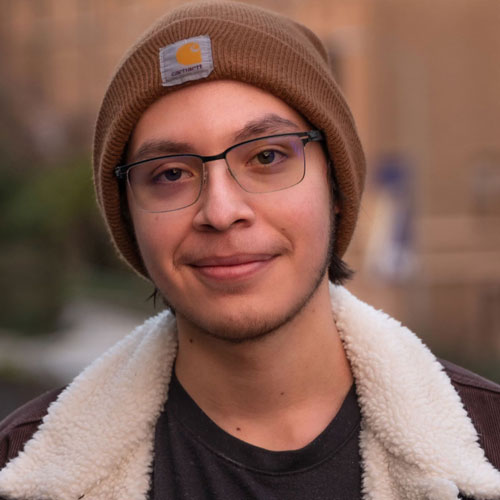 Ethan Blanco
Ethan Blanco
UW senior Ethan Blanco is eager to finish his studies of Public Health-Global Health with a focus on health promotion and education so that he can work in public health and champion diversity, equity and inclusion efforts. “As someone who has faced many barriers because of different intersecting marginalized personal identities, I’ve witnessed a lack of inclusion in many spaces but especially within health-related fields,” he says. Tapping into his own health experiences of feeling voiceless, he wants to commit himself to advocacy for marginalized identities within the health care field. He can envision more holistic linguistic services for those who do not speak English, fostering environments with proactive accessibility measures for those with disability or implementing queer-centric policies across the health care field.
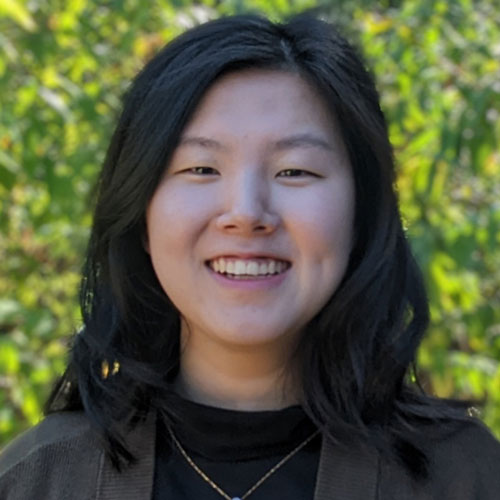 Jen Ka-Ram Son
Jen Ka-Ram Son
Jen Ka-Ram Son, a doctor of pharmacy candidate, left South Korea at age 11. “Coming into a new country, I faced many challenges, including language barriers and cultural differences,” she says. She credits her success in school to her family’s support and the role models who encouraged her. She has been a volunteer and leader of school-based organizations like Bridges to Health at the UW and the International Club at Spokane Community College. Early in the COVID-19 outbreak, she volunteered to give vaccines at a Tulalip Reservation clinic. “My experiences have led me to believe that no individual can succeed without a strong community around them to support them,” she says.
